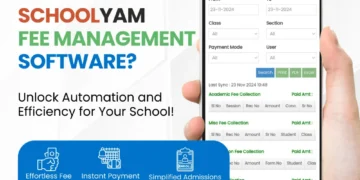The Central Board of Secondary Education (CBSE) has approved the introduction of open-book assessments (OBAs) for Class 9 starting from the academic session 2026–27. This decision follows a pilot study that, despite revealing performance challenges, showed strong support from teachers for the new assessment method.
The approval came during a meeting of the CBSE’s Governing Body, the Board’s top decision-making authority, held in June 2025.
How It Will Work
As per the plan, open-book assessments will be integrated into three pen-paper tests per term, covering core subjects — Languages, Mathematics, Science, and Social Science.
The initiative is aligned with the National Curriculum Framework for School Education (NCFSE) 2023, which, under the National Education Policy (NEP) 2020, encourages assessment methods that move away from rote memorisation and towards application, analysis, and synthesis of knowledge.
Purpose of Open-Book Exams
Open-book exams allow students to refer to textbooks, notes, and other approved resources while answering questions. Instead of testing memorisation, they evaluate the ability to:
- Process and interpret information
- Apply concepts to different contexts
- Think critically and solve problems
The NCFSE highlights OBAs as a tool to promote competency-based learning, encouraging students to connect classroom knowledge with real-world scenarios.
Insights from the Pilot Study
The CBSE pilot study reported student scores between 12% and 47%, indicating difficulties in effectively using available resources and understanding cross-disciplinary concepts.
However, teachers expressed optimism about OBAs, noting their potential to build critical thinking skills. They also stressed the need for:
- Structured training for students
- Guidance on navigating reference material
- Well-designed questions that go beyond simple recall
Next Steps by CBSE
The Board will now work on:
- Standardised sample papers to ensure question quality
- Training frameworks for teachers
- Guidelines for schools to conduct OBAs as part of internal assessments
While the framework will not make OBAs mandatory, it will recommend how schools can adopt them to enhance learning outcomes.
Past Experience
This is not CBSE’s first experiment with open-book formats. In 2014, the Board introduced the Open Text Based Assessment (OTBA) for Class 9 and Class 11 in select subjects. Students were given study material four months in advance. However, the scheme was discontinued in 2017–18 after it failed to significantly improve critical thinking skills.
The Bigger Picture
According to CBSE, the new open-book approach aims to:
- Lower exam-related stress
- Promote conceptual understanding
- Develop problem-solving and analytical skills
- Shift the focus from rote memorisation to real-world application
📄 Source: Official CBSE minutes & NCFSE 2023 guidelines








































